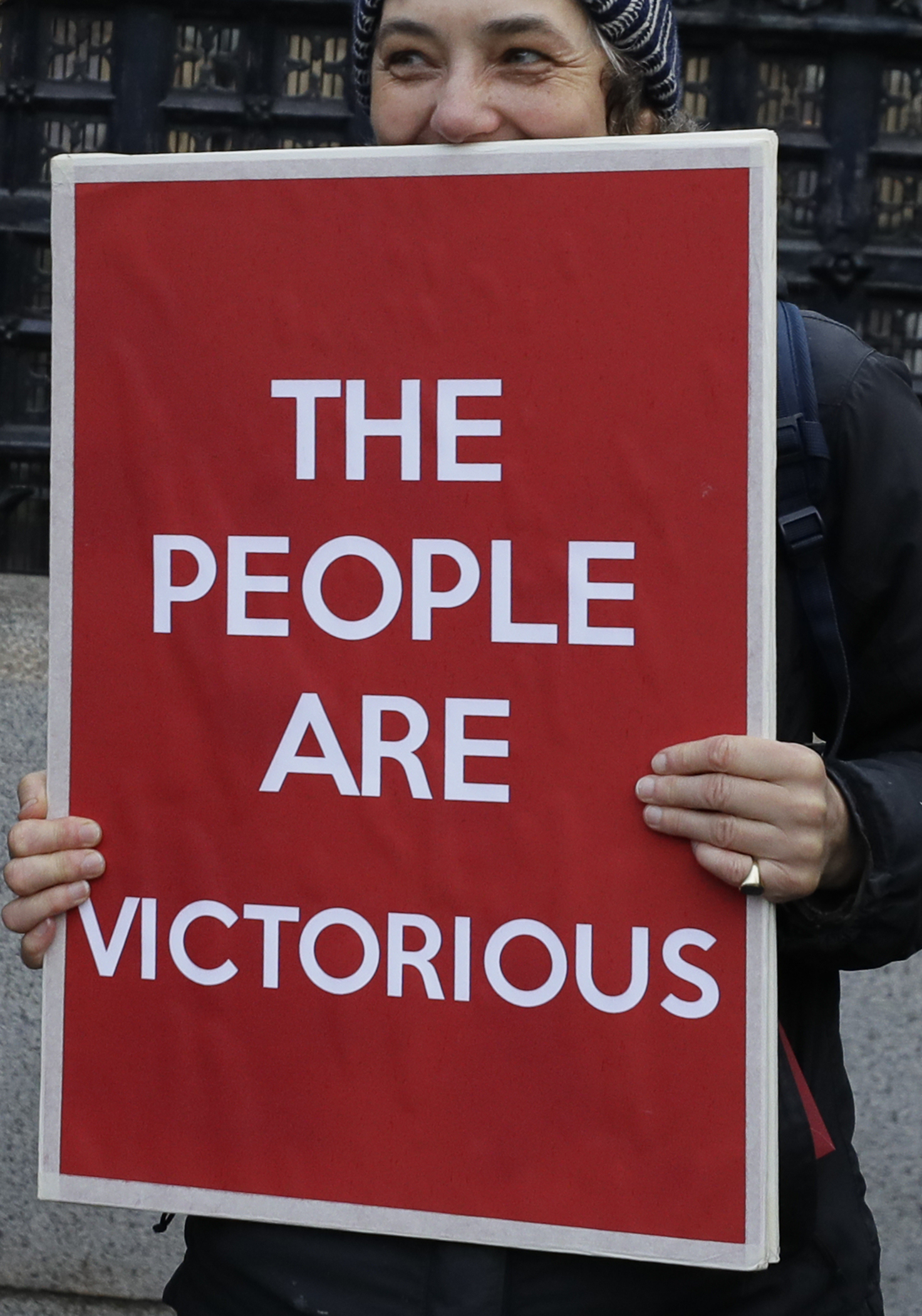Armed with an 80-seat majority, the British Prime Minister Boris Johnson steam-rolled his Brexit agreement through the Commons on Friday, provoking his critics to suggest that majoritarian rule can be bad for democracy.
Boris used characteristically colourful language as he referred to Shakespeare’s Romeo and Juliet as he brought his “Withdrawal Agreement Bill” before the Commons, with intention of having it signed, sealed and delivered by January 31, 2020.
“This is the time when we move on and discard the old labels of ‘leave’ and ‘remain’ — in fact, the very words seem tired to me, as defunct as big enders and little enders or Montagues and Capulets at the end of the play,” he said.
The UK will begin the process of negotiating a trade deal with the EU, but Boris has controversially introduced legislation making it illegal to delay the process beyond the deadline he has set of December 31, 2020. Since many fear this is too short a period for complicated negotiations to be completed, there are genuine fears the UK will leave the EU without an agreed trade deal.
The bill also loses a previous clause on strengthening workers’ rights. The government now says it will deal with this issue in a separate piece of legislation, but the Trade Union Congress has warned that the change will help “drive down” working conditions.
With his huge majority, “Boris can do what he likes”, his critics say, arguing that his margin of victory gives him unfettered powers.
But Boris focused back on his bill, saying it “learns the emphatic lesson of the last Parliament... and rejects any further delay.It ensures we depart on 31 January. At that point Brexit will be done, it will be over. The sorry story of the last three years will be at an end and we can move forward.”
He said it also “paves the way” for an “ambitious free trade deal” with the EU. “The oven is on, it is set at gas mark four, we can have it done at lunchtime and the new deal I negotiated will restore our great institutions.”
Indeed, “get Brexit done” was Boris’s almost sole message throughout the election campaign.
The Scottish National Party’s leader in Westminster, Ian Blackford, said the “harsh reality” of Boris banning any extension to the deadline to negotiate a deal with the EU within this bill is “that risk of a no-deal Brexit that we all fear is back on the table again”.
“Scotland could not have been clearer last week,” he said, referring to the fact that the SNP took 48 out of the 59 seats in
Scotland. “We did not vote for Brexit... and Scotland still totally and utterly rejects Brexit. Yet the prime minister is blindly hurtling towards a cliff edge. This legislation will hit our economy, cost thousands of jobs in Scotland, sell out our food and drink sector and harm livelihoods.”
Labour leader Jeremy Corbyn, a greatly diminished figure, told MPs that Boris had “deliberately resurrected the threat of no-deal” at the end of 2020 by limiting the length of the transition period to 11 months, while shadow Brexit secretary Sir Keir Starmer described the decision as “reckless and irresponsible”, adding that the prime minister was “prepared to put people’s jobs at risk”.
The Democratic Unionist Party of Northern Ireland, which had propped up the Tories in the last parliament, the SNP, and the Liberal Democrats all put down amendments saying Boris’s Brexit bill should not be given a reading. But none was chosen for debate by the new speaker, Sir Lindsay Hoyle, marking a departure from the alleged anti-Tory stance taken by his predecessor, John Bercow.
Brexit Secretary Stephen Barclay hailed Friday as “an historic day” for the UK. MPs have been given a further three days – 7, 8 and 9 January – to continue their debate in the Commons. The government says the Brexit bill will get it into law in time for the 31 January Brexit deadline.











